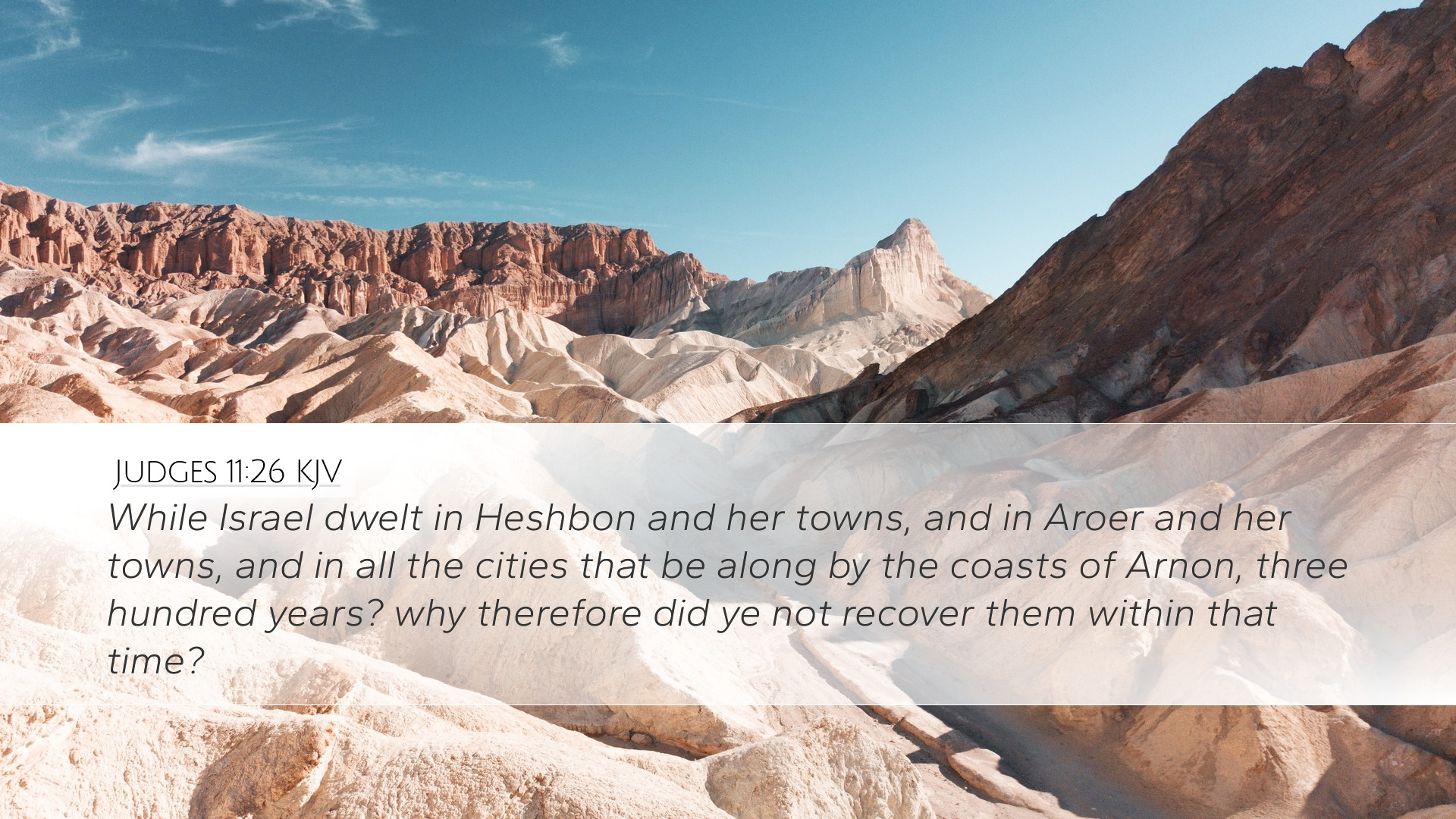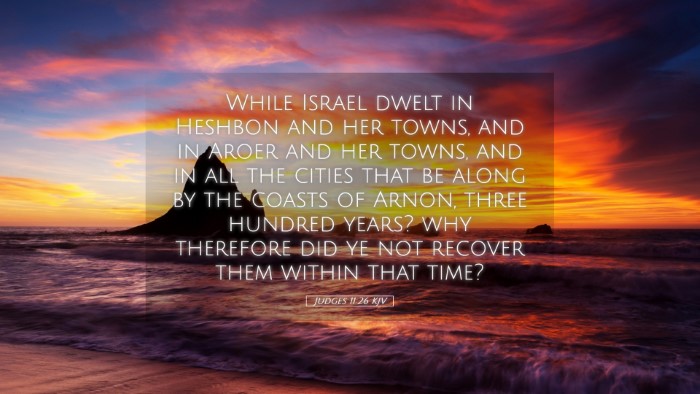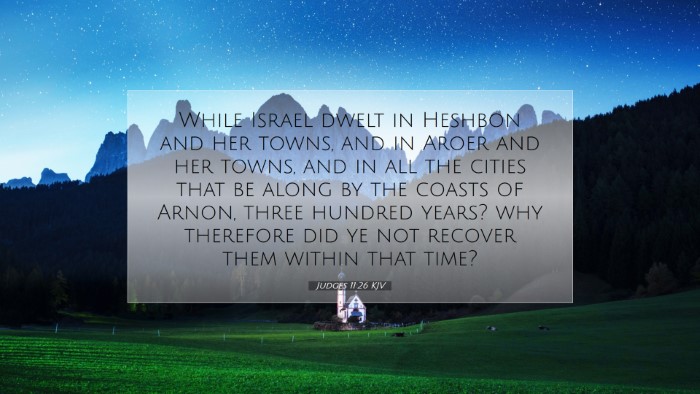Commentary on Judges 11:26
Judges 11:26 states, “While Israel dwelt in Heshbon and her towns, and in Aroer and her towns, and in all the cities that be along by the coasts of Arnon, three hundred years; why therefore did ye not recover them within that time?”
Contextual Overview
This verse is embedded in the narrative of Jephthah, a judge of Israel who led them against the Ammonites. His statement is not merely an assertion but a rhetorical question that highlights historical grievances between Israel and Ammon.
Understanding this passage involves examining the geographical and historical context of Israel’s settlement in Heshbon and Aroer, which were crucial cities related to the territory dispute that Jephthah references.
Historical Significance
Matthew Henry notes that Israel's long presence in Heshbon demonstrates their peaceful settlement, which contrasts sharply with the Ammonites' late claims to the land. This point serves to remind the Ammonite king of the historical reality—that they had coexisted with Israel for centuries without contesting these territories.
Albert Barnes emphasizes the significance of the 300 years mentioned in the verse. It illustrates that the Israelites have held these lands since the time of their wanderings and prior conquests. The protracted period without contention from the Ammonites calls into question the legitimacy of their claims and demonstrates Israel's rights to the land.
Theological Implications
Jephthah’s question reflects a deeper theological lesson about God’s sovereignty and the inheritance of land. Adam Clarke purports that the passage underscores Israel's enduring relationship with God, who has given them these lands. Thus, the Ammonite challenge becomes more than a territorial dispute; it symbolizes a challenge against God's ordained plans for Israel.
The verse invites reflection on the covenant promises made by God to Israel. These covenants signify God’s fidelity and the divine right of possession granted to His people.
Legal and Moral Context
The appeal to past history serves both legal and moral purposes. Jephthah frames the Ammonite demand as unjust, indicating that they were aware of Israel's long occupation yet chose to remain silent. This aligns with established legal frameworks of the time where claims to land must be substantiated by a history of possession and use.
- Moral Argumentation: Jephthah’s defense emphasizes justice in land claims, reminding the Ammonites that moral legitimacy was rooted in a history of occupation.
- Legal Precedent: By invoking the 300 years of occupancy, Jephthah grounds his argument in a form of legal precedent that would have been recognized both by his own people and his adversaries.
Application for Today
For contemporary readers, this verse provides a model for how to address grievances and disputes, pointing to the importance of historical context and seeking peaceful resolutions. It encourages engagement in dialogues based on truth and context, allowing for a more constructive exchange even in matters of deep disagreement.
In the context of church leadership, pastoral discussions, and community relations, Jephthah’s approach can be seen as a call for leaders to understand the histories and experiences of others, ensuring that all voices are recognized and respected.
Exegesis by Notable Commentators
Here are additional insights from renowned biblical scholars:
- Matthew Henry: Highlights the importance of reliance on historical facts in disputes, suggesting that past grievances should inform current issues.
- Albert Barnes: Offers a detailed exploration of territorial rights in ancient Israel, stressing that rightful ownership must be recognized to maintain justice.
- Adam Clarke: Focuses on the theological perspectives regarding God’s promises to Israel and their implications for justice in contemporary disputes.
Conclusion
Judges 11:26 serves as a profound reminder of the complexities surrounding land ownership, historical grievances, and the quest for justice. It encourages believers to reflect on their heritage, God's promises, and the moral implications of their claims in both historical and modern contexts. For pastors and theologians alike, this verse challenges the Church to consider how they navigate their own histories and their roles in the ongoing narratives that shape community lives today.


